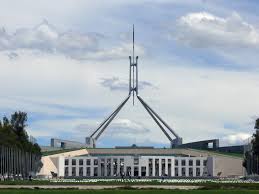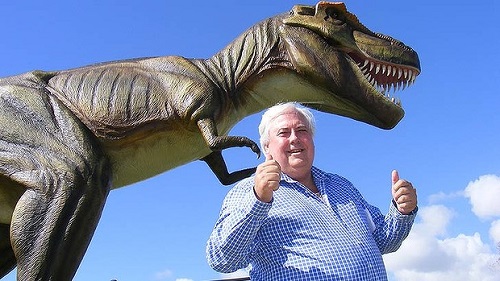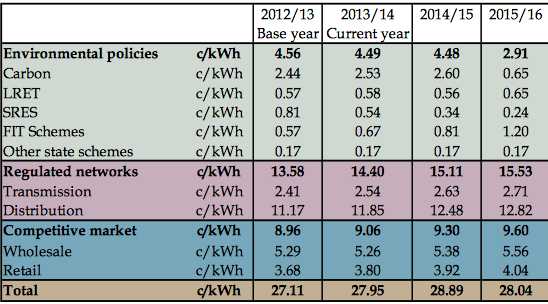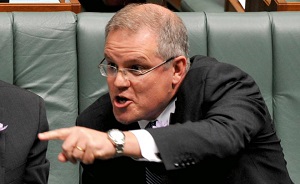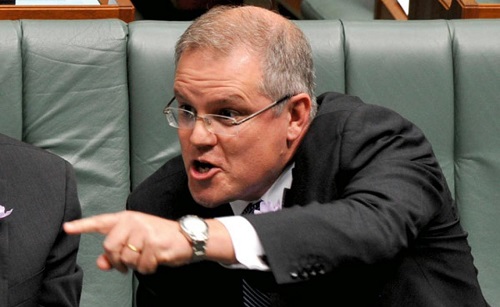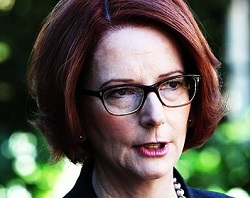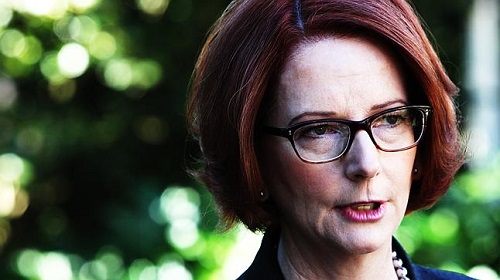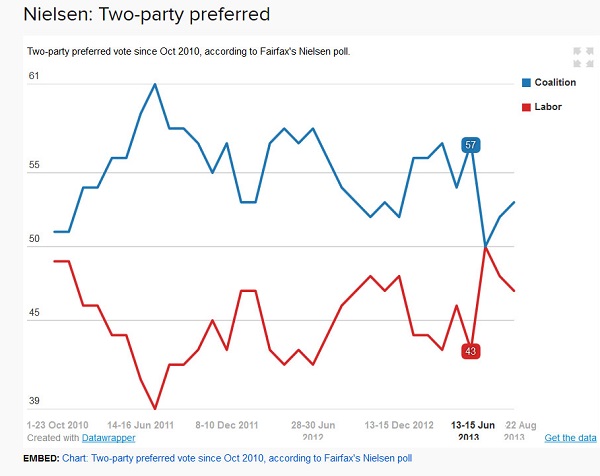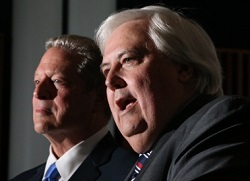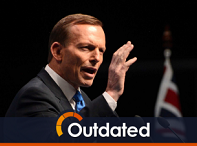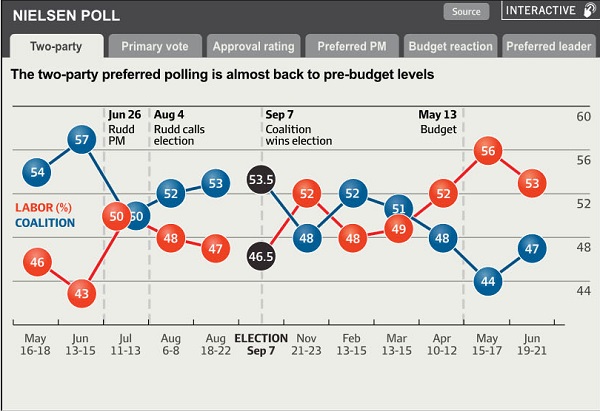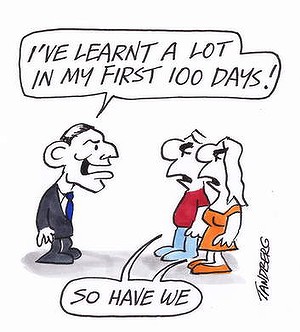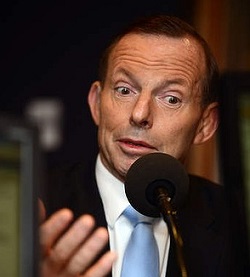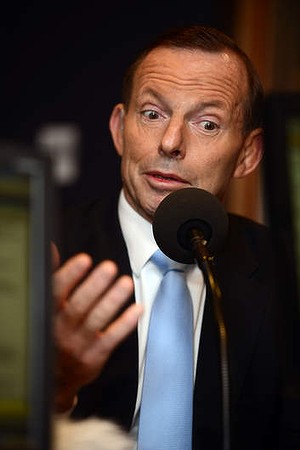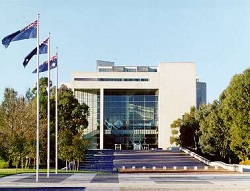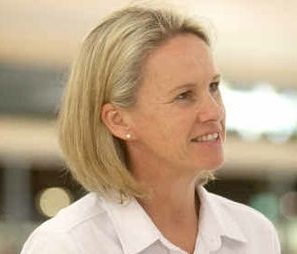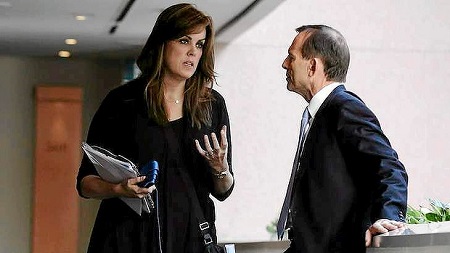Palmer spoiling Abbott’s party
That was the headline of the sensible Dennis Atkins’ opinion piece in the Courier Mail on Saturday.
Abbott now has to wait until next week and cede the centre stage in the House of Representatives to Clive Palmer, the pest who has become a nemesis while also being the guy the PM cannot ignore.
Tony Wright in the SMH describes Palmer as the emperor in the check shirt holding court upon a leather chaise longue at the entrance to the Senate chamber. There “the formerly mighty paid obeisance, begging his mercy”:
Here came Eric Abetz, leader of the government in the Senate; Mitch Fifield, manager of government business in the Senate; Simon Birmingham, parliamentary secretary to the Minister for Environment; all of them very nearly falling to their knees. A swirl of harried government advisers circled and whispered, knowing there was no escape for their masters.
Clive Palmer had no pity to dispense.
His eyes were dead to the presence of the supplicants, his ears closed to their pleading.
Repeal the carbon tax today? No chance.
He drew around him his little band of senators, instructing them on their duty.
And so on.
There is plenty at stake. Atkins article identifies the following:
- Stopping Newstart for the young for 6 months – $2.1b
- Changes to family tax benefit B – $1.9b
- Axing seniors supplement $1.2b
- Co-payment for pharmaceuticals – $1.2b
- Higher education cuts – $5b
- CPI petrol excise rise $4.1b
- Medicare co-payments $3.6b
- Freezing family tax benefit indexation – $2.6b
- Axing family tax supplements $1.2b
- Other measures – at least $2b.
Right there is $25 billion I assume over forward estimates. Surely Hockey will need a mini-budget to effect repairs, but I hate to think what he might cut in the process assuming he won’t increase taxes.
It’s important to remember, however, that Palmer only becomes potent when Labor and the Greens line up in opposition to the Abbottistas.
And then Palmer only controls three votes whereas Abbott needs six of the eight cross-benchers to line up.
Ricky Muir is stressing his autonomy. Again from the SMH:
Ricky Muir is moving out of the shadow of Clive Palmer, describing his agreement with the Palmer United Party as nothing more than a “loose alliance” and warning the government not to assume he will vote with PUP.
Senator Muir stressed his agreement with the bloc boiled down to being “together but autonomous”.
“The memorandum of understanding [signed with PUP] did say, and I stand by it, we will work together where practical. But we’re going to need to do our own research on every different topic and then work together where practical.”
Topics that interest Muir are:
The so-called ”rev-head senator” outlined personal passions that include organic food, which he grows and eats from his garden in rural Victoria, preventive healthcare, which he is interested in championing at a political level, and renewable energy, following his surprise intervention last week to protect the Australian Renewable Energy Agency from the government’s budget knife.
Giles Parkinson says Muir decided to make his mark in rescuing ARENA after the famous ‘brain freeze’ interview with Mike Willisee.
We’ll have to see whether that means the Government will stop playing hardball. The Guardian reported earlier that industry minister, Ian MacFarlane, had been refusing to renew the contracts of ARENA board members meaning that within a few weeks the secretary of the industry department would be the only remaining board member of the authority. Parkinson emphasises that no investment will flow until confidence is restored.
In this as with the senate generally the Government is struggling to appear in control. Abbott assured the faithful in Brisbane that all was “normal” which Shorten thought delusional. Greg Hunt huffed and puffed and said:
he was “sending a very, very, very clear message” to any crossbenchers who voted against repeal that they would have to “explain themselves” to the Australian people, saying he was “firming up [his] approach from diplomacy to send a very clear message”.
He only said that because he thinks he has PUP, Muir, David Leyonhjelm and Bob Day on board. There’s just one small problem. Clive has been relaxing in New Zealand:
The PUP leader, Clive Palmer, told Guardian Australia that he was on holidays and “oblivious” to any deal, the PUP senators are not scheduled to meet to consider any changes until Monday morning, and four other Senate crossbenchers refuse to guarantee their vote until they see the final form of the agreement.
Still the Government says they are going to call Palmer’s bluff and bring on the vote. I thought that was where they went wrong last week. That included them accepting Palmer’s amendment with all of 15 minutes consideration. Then it all fell apart again. Xenephon:
“I think if the government was asked to put red underpants on their heads in the Senate chamber, I reckon they probably would have done it.”
Still it might all go smoothly and the Government will succeed in stripping another $9 billion off the bottom line!
Last week Tony Wright says:
It was as if Labor’s 36 faceless men of 1963 had been revisited in reverse.
And while all around wore serious suits and smart little business frocks, the big man lounged in chinos and a checked shirt unbuttoned halfway to his belly. An emperor in clothes of his own choosing.
Here’s Palmer at a press conference looking relaxed:
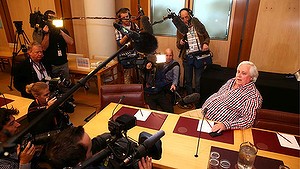
We wait to see whether the soapie continues!
Se also Disorder in the house.

